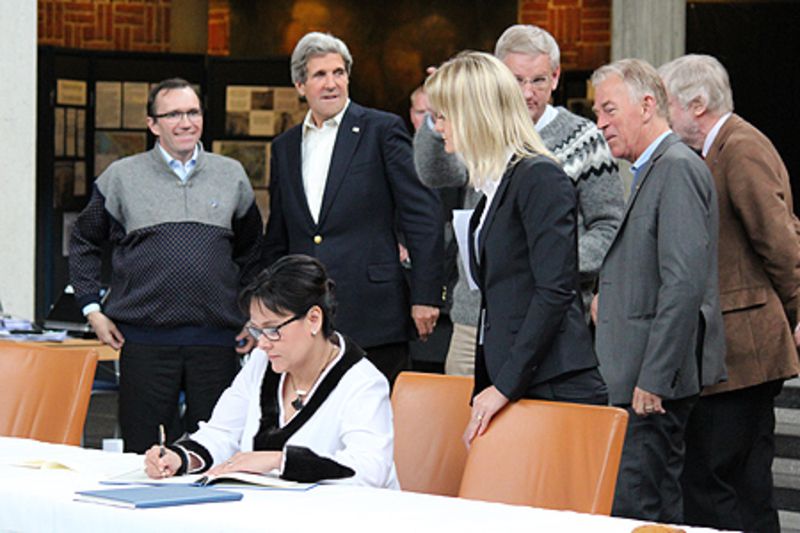The US example appears to be infectious 11 days before Copenhagen
Adelina Marini, November 26, 2009
 Only 11 days before the beginning of the climate conference in Copenhagen and a day after president Obama announced that he would participate, China presented its plans for greenhouse gases reduction. According to the formulation, quote by the BBC, Beijing would aim to reduce its "carbon intensity" by 40-45% by the year 2020, compared with 2005 levels. The term "carbon intensity", preferred by China, is the amount of carbon dioxide emitted for each unit of GDP. Besides, Beijing has announced that the Chinese prime minister Wen Jiabao would attend the talks in Copenhagen.
Only 11 days before the beginning of the climate conference in Copenhagen and a day after president Obama announced that he would participate, China presented its plans for greenhouse gases reduction. According to the formulation, quote by the BBC, Beijing would aim to reduce its "carbon intensity" by 40-45% by the year 2020, compared with 2005 levels. The term "carbon intensity", preferred by China, is the amount of carbon dioxide emitted for each unit of GDP. Besides, Beijing has announced that the Chinese prime minister Wen Jiabao would attend the talks in Copenhagen.
Thus the meeting for which there was fear that from a summit would turn into a meeting of experts, now has all chances to turn into real negotiations with real targets. After Barack Obama announced he will attend the conference, although for a day, this proved that the example of the US is more than infectious and the commitments Washington will take will give the necessary impetus to all other large polluters to keep their efforts for averting climate change on track.
According to the Associated Press, China will seek binding pollution targets for developed countries and reject similar requirements for the developing countries. China's top climate envoy Yu Qingtai said it is unfair that all countries be required to play a role combating global warming since most of the environmental damage was caused by developed nations during their industrialization over the last 100 to 200 years.
"Developed countries should not make requirements of developing countries that are unreasonable," Yu added.
It is still not quite clear how ambitious the Chinese proposal is. Furthermore, it is expected Chinese economy to continue to grow for the next 20 years and it is based mainly on coal energy.
Now that we know that there will be a summit in Copenhagen and real negotiations for an agreement, though not legally binding, what remains is to agree on another major issue - the financing of the efforts of developing countries to achieve emissions reduction by, at the same time, keeping their economic development.
At the moment the biggest greenhouse gas polluter - China - has committed to reduce energy consumption per unit of GDP by 20% between 2005 and 2010. And by 2020 15% of the energy China produces should be produced by renewable sources.
 | © Government of Sweden
| © Government of Sweden | © КРИБ
| © КРИБ | © euinside
| © euinside